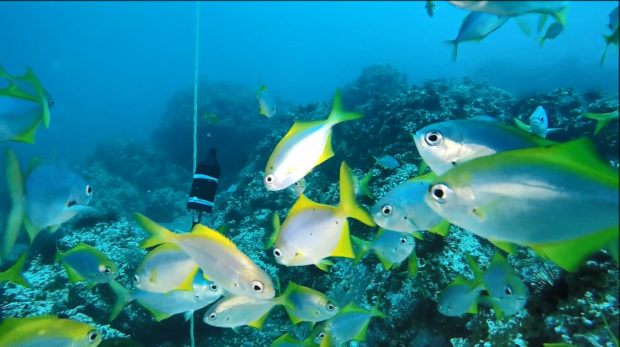
The hydrophone that records the sounds of the ocean for 24 hours is surrounded by an abundant school of Scorpis chilensis, a species endemic to the Juan Fernández Archipelago. Image: Iván Hinojosa
By Paula Díaz Levi
When Ivan Hinojosa was working on his doctorate in Australia, he studied how the reef’s sound oriented lobster larvae, which swam several kilometers from the open ocean to the coastal waters to find a place to settle. These sounds are generated by the interactions of different species, just as happens on land, and constitute guiding signals for these little organisms.
That research about the Australian lobster demonstrated the essential role of underwater sound and inspired an innovative project, this time in the Pacific Ocean along the Chilean coast at the Juan Fernández Archipelago, Easter Island and Quiriquina Island.
Continue reading →




